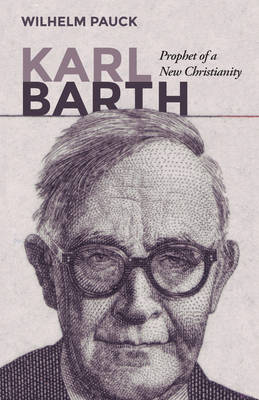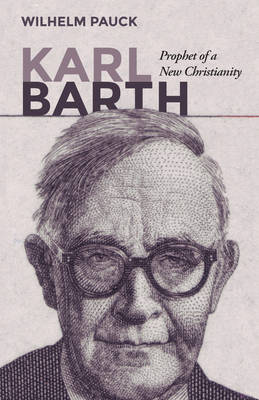
Door een staking bij bpost kan je online bestelling op dit moment iets langer onderweg zijn dan voorzien. Dringend iets nodig? Onze winkels ontvangen jou met open armen!
- Afhalen na 1 uur in een winkel met voorraad
- Gratis thuislevering in België vanaf € 30
- Ruim aanbod met 7 miljoen producten
Door een staking bij bpost kan je online bestelling op dit moment iets langer onderweg zijn dan voorzien. Dringend iets nodig? Onze winkels ontvangen jou met open armen!
- Afhalen na 1 uur in een winkel met voorraad
- Gratis thuislevering in België vanaf € 30
- Ruim aanbod met 7 miljoen producten
Zoeken
Omschrijving
In the 1930s, Karl Barth was unquestionably the most discussed personality in the theological world of that time. This book was the first of its kind to be published in America, giving an adequate story of Barth's life, a complete outline of his teaching, and a careful estimate of the so-called ""Barthian Movement."" Dr. Pauck, of the Chicago Theological Seminary, was born and educated in Germany, and had studied under Barth. By training, personal relationship with Barth and his followers, and by a knowledge of practically everything that has been written by or about Barth, Dr. Pauck was preeminently fitted to write this book. Moreover, his American professorship allowed him to be more cognizant of the American mind, enabling him to explain Barth and his message to a puzzled, sometimes skeptical, American audience. The author pictures Barth in his early days as a minister of a Reformed Church in Geneva. Fresh from a seminary training in liberal theology, he finds that he is not assured of that authority with which he feels he has to speak of God to his people. He therefore attempts to retrieve the old Christian belief in a revelation of the divine. Opposing the orthodox dogma of supernaturalism as well as the modernist emphasis on the psychological approach to religion, he develops a theology of ""divine realism."" The challenging theology of Barthianism is presented historically, practically, and without prejudice. It not only confronts every minister, conservative or liberal, with the persistent question, ""What do I think about Barth?"" but also with the more personal question, ""What do I now do in light of Barth's prophetic message?""
Specificaties
Betrokkenen
- Auteur(s):
- Uitgeverij:
Inhoud
- Aantal bladzijden:
- 238
- Taal:
- Engels
Eigenschappen
- Productcode (EAN):
- 9781532641558
- Verschijningsdatum:
- 6/04/2018
- Uitvoering:
- Paperback
- Formaat:
- Trade paperback (VS)
- Afmetingen:
- 152 mm x 226 mm
- Gewicht:
- 476 g

Alleen bij Standaard Boekhandel
+ 80 punten op je klantenkaart van Standaard Boekhandel
Beoordelingen
We publiceren alleen reviews die voldoen aan de voorwaarden voor reviews. Bekijk onze voorwaarden voor reviews.











